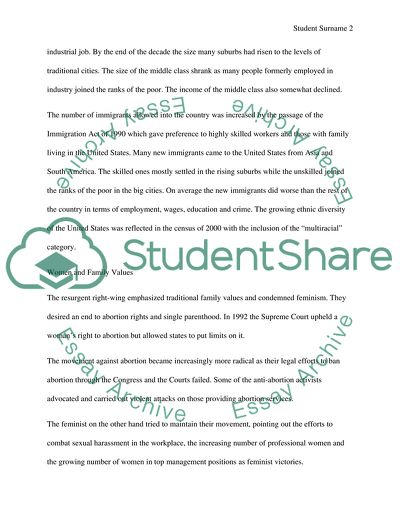Cite this document
(Entering a New Century, 1992 - 2004 Term Paper Example | Topics and Well Written Essays - 1500 words, n.d.)
Entering a New Century, 1992 - 2004 Term Paper Example | Topics and Well Written Essays - 1500 words. Retrieved from https://studentshare.org/history/1738638-summary-chapter-31-american-history
Entering a New Century, 1992 - 2004 Term Paper Example | Topics and Well Written Essays - 1500 words. Retrieved from https://studentshare.org/history/1738638-summary-chapter-31-american-history
(Entering a New Century, 1992 - 2004 Term Paper Example | Topics and Well Written Essays - 1500 Words)
Entering a New Century, 1992 - 2004 Term Paper Example | Topics and Well Written Essays - 1500 Words. https://studentshare.org/history/1738638-summary-chapter-31-american-history.
Entering a New Century, 1992 - 2004 Term Paper Example | Topics and Well Written Essays - 1500 Words. https://studentshare.org/history/1738638-summary-chapter-31-american-history.
“Entering a New Century, 1992 - 2004 Term Paper Example | Topics and Well Written Essays - 1500 Words”, n.d. https://studentshare.org/history/1738638-summary-chapter-31-american-history.


